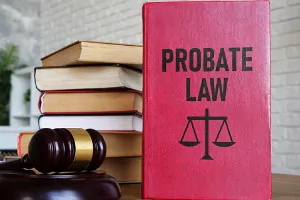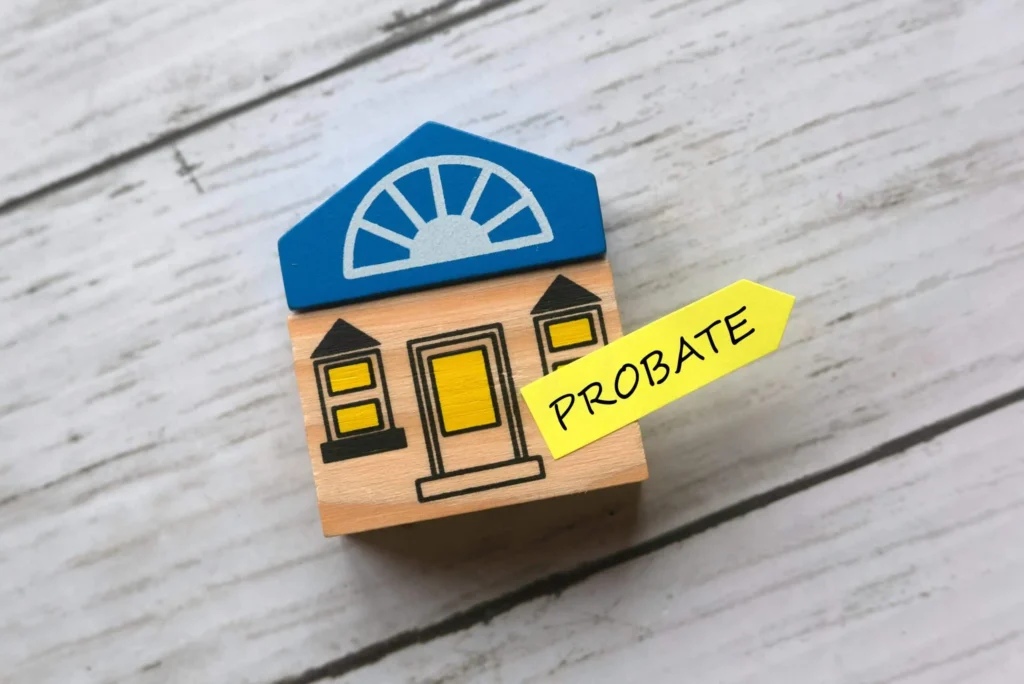Probating a will can be an overwhelming experience, especially when considering how to probate a will in Texas without a lawyer. Navigating the legal maze may seem daunting, but with the right knowledge and preparation, it’s entirely possible to handle this process yourself.
Understanding the probate process is key to achieving success. By breaking it down into manageable steps and keeping the right strategies in mind, you can save money, reduce stress, and ensure the decedent’s wishes are honored. Let’s dive into the details of probating a will in Texas without a lawyer.
What Is Probate?

Probate is the legal process through which a deceased person’s assets are distributed to heirs and beneficiaries, and any debts are settled. In Texas, probate ensures the deceased’s will is validated and their estate is administered according to their wishes.
If you’re asking, “How do you probate a will in Texas without a lawyer?” it’s important to first understand the basic structure of the probate process. Texas offers a relatively streamlined probate system compared to other states, which can make it easier for individuals to manage the process independently.
Types of Probate in Texas
When handling probate in Texas, the type of probate process used depends on the complexity of the estate. Understanding these types is crucial:
1. Independent Administration

Independent administration is the most common and simplified form of probate in Texas. With minimal court supervision, the executor or administrator has greater autonomy to manage the estate.
2. Dependent Administration

Dependent administration involves stricter court oversight. Every decision the executor makes requires court approval, which can make the process more cumbersome.
3. Muniment of Title

For estates with no debts (aside from a mortgage), the muniment of title process allows the transfer of property without ongoing administration.
4. Small Estate Affidavit

If the estate’s value is under $75,000 (excluding the homestead), a small estate affidavit can bypass the need for formal probate altogether.
Steps to Probate a Will in Texas Without a Lawyer

Handling the probate process on your own in Texas may sound intimidating, but with a clear roadmap, it can become an achievable task. Here is an expanded guide on how to probate a will in Texas without a lawyer, offering more insight into each critical step.
Step 1: Determine If Probate Is Necessary
Start by identifying whether probate is required. Many assets, such as joint bank accounts with rights of survivorship or payable-on-death accounts, bypass probate entirely. If the estate includes significant properties like real estate or assets without designated beneficiaries, probate will likely be necessary. Create a detailed inventory of the decedent’s assets, including their estimated value and legal ownership, to confirm what must go through probate.
Step 2: Locate and Secure the Will
Finding the original will is vital. If you only have a copy, you may need additional court proceedings to validate it. The will should be filed promptly with the probate court in the county where the deceased resided. Texas law requires filing the will within four years of the decedent’s death, so act quickly. Verify that the will is signed and legally valid to avoid unnecessary delays.
Step 3: File an Application for Probate
Once you’ve secured the will, submit anapplication for probate to the appropriate county court. This document formally requests the court to recognize the will and appoint an executor. Ensure the application includes all necessary details about the deceased, heirs, and estate assets. You’ll also need to pay a filing fee, which varies by county.
Step 4: Post a Notice of Probate
Texas law requires executors to notify the public about the probate proceedings by posting a notice in a local newspaper. This step serves as an alert to creditors, giving them an opportunity to file claims against the estate. Be diligent in following the court’s instructions for proper notification.
Step 5: Attend the Probate Hearing
The court will schedule a hearing after your application is filed. At this hearing, the judge will confirm the validity of the will and formally appoint the executor. If the will is contested, this hearing becomes an opportunity to address disputes. Prepare thoroughly by bringing all necessary documents and records to support your case.
Step 6: Notify Creditors and Beneficiaries
After the executor’s appointment, they must notify creditors in writing and beneficiaries about their inheritance. For creditors, this step involves sending a formal notice and allowing time for them to file claims. Beneficiaries should receive details about their entitlements and an estimated timeline for distribution.
Step 7: Pay Debts and Taxes
The executor is responsible for settling all outstanding debts and taxes owed by the estate. This includes reviewing claims submitted by creditors and disputing invalid ones. Ensure that the decedent’s final income tax returns are filed. Texas does not have an estate tax, but federal estate tax may apply to larger estates.
Step 8: Distribute Remaining Assets
Once debts and taxes are paid, the remaining assets can be distributed to beneficiaries. Follow the instructions outlined in the will carefully to avoid disputes. Keep thorough records of all transactions and provide a final accounting to the court if required.
Step 9: Close the Estate
The final step is closing the estate by filing the necessary documents with the court. This typically includes a report showing that all debts were paid, taxes filed, and assets distributed. Once approved, the court will officially close the probate case.
Tips for a Smooth DIY Probate Process

Handling probate without a lawyer doesn’t have to be overly complicated. Here are some practical tips to simplify the process:
1. Stay Organized
Keep detailed records of all communications, court filings, and financial transactions. Organization is critical to avoiding missteps.
2. Leverage Online Resources
Texas courts provide forms and guidelines online. These resources can help you understand specific requirements and avoid errors.
3. Use a Notary Public
Certain documents may require notarization. Ensure you have access to a notary to streamline the process.
4. Seek Guidance When Needed
While you may not hire a lawyer, consulting one for specific advice can be beneficial. Some attorneys offer limited-scope services to assist with complex issues.
Real-Life Example: A DIY Success Story
Let’s consider Jane, who recently faced the challenge of probating her late father’s will in Texas. Jane’s father had a simple estate with no debts. She decided to handle the probate process herself using the independent administration route.
Jane started by locating her father’s will and filing the necessary paperwork with the local probate court. She meticulously followed the court’s instructions, attended the hearing, and was appointed executor. By leveraging online resources and staying organized, Jane successfully managed the estate without hiring a lawyer. Her story illustrates that, with careful planning, probating a will without legal representation is achievable.
Challenges You May Encounter
While the DIY approach can save money, it’s not without challenges:
- Complex Estates: Large or complicated estates may require legal expertise.
- Contested Wills: If disputes arise among heirs, the process can become contentious.
- Legal Missteps: Failing to comply with Texas probate laws can lead to delays or penalties.
If you encounter any of these issues, consider seeking professional guidance to protect the estate and its beneficiaries.
Benefits of Probating a Will Without a Lawyer
Opting to probate a will in Texas without a lawyer offers a range of significant advantages that can make the process both rewarding and manageable. While it requires time and effort, the benefits often outweigh the challenges for those willing to take a hands-on approach.
1. Cost Savings
One of the most compelling reasons to probate a will without legal representation is the potential for cost savings. Attorney fees can add up quickly, particularly for complex estates. By managing the probate process independently, you can save thousands of dollars that would otherwise go to legal services. This is especially beneficial for smaller estates where the added expense of an attorney might be disproportionately high.
2. Control and Personal Involvement
When you choose to handle probate yourself, you retain full control over the process. You make the decisions, set the pace, and oversee every detail of the estate’s administration. This hands-on involvement ensures that the process aligns with your priorities and the wishes of the deceased. Additionally, being directly involved allows you to address any issues promptly, without relying on a third party.
3. Educational Experience
Probating a will without a lawyer is not just a legal task—it’s also an educational journey. Managing the process yourself provides valuable insights into estate management, financial organization, and the legal system. This experience can be incredibly beneficial if you need to manage future estates or assist loved ones in similar situations. You’ll gain skills that extend far beyond probate.
4. Flexibility in Communication
When you’re not working through an attorney, you have direct communication with the probate court, creditors, and beneficiaries. This eliminates the potential for delays that can occur when waiting for an attorney to act as an intermediary. You can address inquiries and resolve issues more efficiently, keeping the process moving smoothly.
5. Transparency and Accountability
Handling probate yourself fosters transparency. You’ll have firsthand knowledge of every financial transaction, court filing, and communication, ensuring that nothing is overlooked or mishandled. This level of accountability can provide peace of mind to all parties involved, particularly beneficiaries who might otherwise feel disconnected from the process.
6. Tailored Approach
Each estate is unique, and managing probate independently allows you to tailor your approach to suit the specific circumstances of the estate. Whether it’s dealing with a small estate affidavit, navigating independent administration, or handling unique assets, you can customize your strategy without being bound by an attorney’s standard methods.
Final Thoughts
Understanding how to probate a will in Texas without a lawyer is empowering. While the process requires effort and attention to detail, it’s entirely manageable for those willing to take the initiative. By following the steps outlined above and remaining organized, you can navigate the probate process confidently and honor your loved one’s wishes.









